Resources
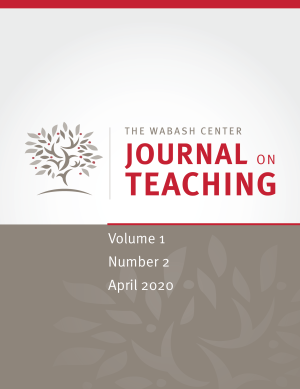
This essay reflects on a critical incident that occurred during a seminar discussion about the age of Aishah at the time of her marriage to the prophet Muhammed. I take students’ discomfort with the material and their expression of emotions—especially their desire to love Islam—as an opening to think about the opportunities and challenges of working with students’ emotions in the classroom. I begin by problematizing love (or the want of it) as an Islamophilic response to students’ awareness of the dangers of Islamophobia. I then go on to entertain the possibility of embracing love as a ‘productive’ emotion that offers insights into the study of Islam and Muslims. While I caution against the traps of Islamophilia, I take love as an important and perhaps overlooked dimension of pedagogy. This is one of three essays published together in a special topic section of this journal on critical incidents in the classroom.
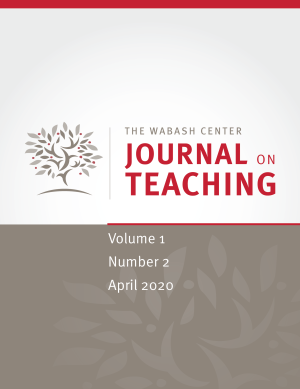
Teaching and learning a biblical language such as Greek can pose a set of pedagogical challenges in a multicultural classroom where the instructor and students have different cultural assumptions about language learning. Reflecting on her encounter with a student’s question regarding why ancient Greek grammar operates the way it does, the author explores how this critical incident helped her recognize the cultural diversity in the classroom and develop a new pedagogical toolkit. In particular, the author employed multi-sensory activities using music and visuals to foster the students’ motivation and bridge the gaps between different cultural assumptions. This experience eventually led the author to another pedagogical insight: Teaching and learning Greek at a seminary are critical to building much-needed intercultural competency for informed ministry in the twenty-first century. This is one of three essays published together in a special topic section of this journal on critical incidents in the classroom.
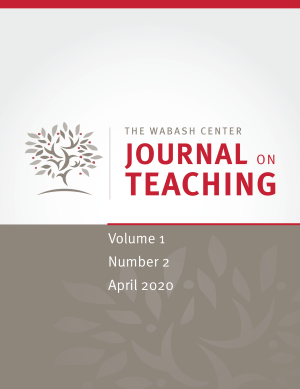
When one angry student refused to follow my discussion structure in a class on diverse Christian views of gender and sexuality, I was unable to keep other students in the room safe from his harmful tirade. After this student refused to apologize in aggressively disrespectful language to me in a private meeting, I petitioned for university sanction. The student responded to my request for a disciplinary hearing by launching a social media campaign to discredit me and my reasons for requesting this hearing. This awful class and the subsequent related events, including the administrative response to the social media outrage, have led me to a deeper understanding of what it means to embrace responsibility while at the same time recognizing and accepting that I am not in control. This is one of three essays published together in a special topic section of this journal on critical incidents in the classroom.
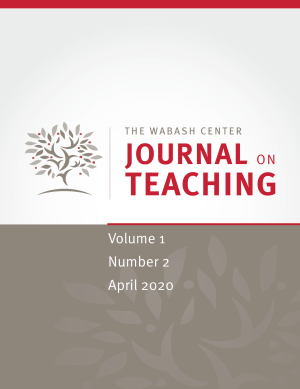
As of 2017, the Association of Theological Schools had seen an increase in online course enrollment of 200 percent over ten years. It is therefore worth exploring in some depth the potential challenges and strengths of online and hybrid programs. This article describes one hybrid online-residential program, the Alternative Clergy Training at Sewanee (ACTS) program at the School of Theology at the University of the South, familiarly known as Sewanee. Based on the experience of this program and contemporary research on the strengths of online and hybrid programs, it is argued that hybrid learning has significant advantages in its own right, perhaps especially for those who may be considered “hybrid clergy,” the deacons and bivocational priests for whom the program was designed.
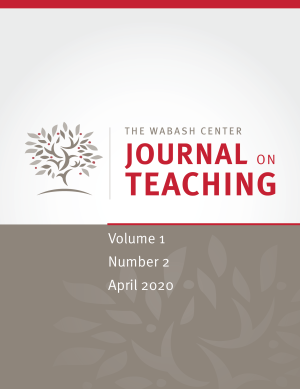
This paper reflects upon the collaborative work between a professor and a librarian who constructed a course on religious communes in the United States implementing the seven elements of metaliteracy as put forth by Jacobson and Mackey (2013). The shifting terrain of information literacy is hard enough for librarians to traverse, but it can feel insurmountable for professors in the classroom. Working side by side with a librarian can be one of the most fruitful ways for professors to advance in this field. The seed for this project was a collective intent to create lifelong learners with strong habits of inquiry rather than merely teaching students discrete search strategies and skills. By using technology and team-based learning, the collaborators hoped to open up the students to a critical yet empathetic understanding of religion and to help them develop as informed users and creators on the internet.
History simulations have been shown to promote student learning in classrooms throughout higher education. In an undergraduate course on the New Testament and early Christianity, we sought to foster student learning by having students participate in history simulations that involved the use of fictitious personas known as avatars. In this paper we describe the avatar activities in these simulations, and we examine the effects of our simulations on students' abilities in “historical thinking”: that is, engaging in the interpretive practices that historians use to reconstruct the past. We argue that our avatar simulations helped our students build upon, refine, and deepen their abilities in historical thinking in small but perceptible ways. We end by noting the extent to which our findings align with research on the use of history simulations and by identifying ways to develop our project moving forward.
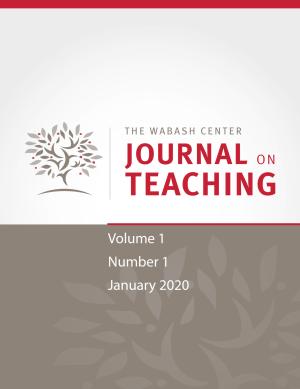
Katie Geneva Cannon equipped generations of students with analytical tools to reckon with the past and present and to creatively construct previously unimaginable futures. Her body of work teaches us to find new paths as we critically plumb our own historically situated epistemologies and put them in conversation with a variety of traditions. As my teacher, dissertation advisor, and mentor during my graduate studies in religion at Temple University from 1993-2000, Dr. Cannon taught me to examine rigorously my own story in its larger historical and geopolitical contexts, to parse the privileges and perils of pursuing the academic study of religion as a white woman, and to engage deeply with multitudinous ways of knowing. See companion contributions to this Forum written by Edwin David Aponte, Miguel A. De La Torre, Stacey M. Floyd-Thomas, and Angela D. Sims.
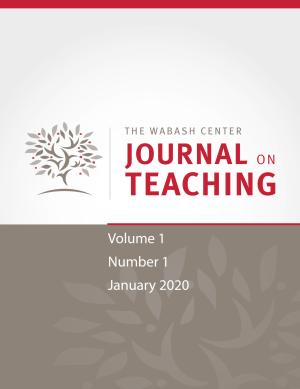
Written by her first doctoral student, this essay is a tribute to the legacy and lessons of Dr. Katie Geneva Cannon (1950-2018), the progenitor of womanist ethics. The author embraces Cannon’s signature womanist embodied pedagogy, which takes embodiment as a Black woman seriously and serves as a paradigm for those who purposefully and poignantly live intersecting roles of race, gender, and class. Through both a personal account of the grief experienced by the passing of her mentor and a critical reflection on lessons learned by Cannon’s legacy, the author exposes the daunting challenges faced by womanist scholars as they navigate the front line of the classroom and the frequently death-dealing and dismissive terrain of higher education. See companion contributions to this Forum written by Edwin David Aponte, Miguel A. De La Torre, Stacey M. Floyd-Thomas, Karen K. Seat, and Angela D. Sims.
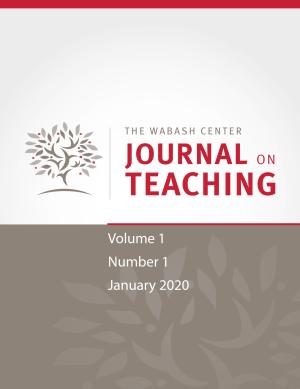
This short essay describes a teaching strategy that addresses a key threshold concept in undergraduate biblical studies courses – how an interpreter’s location within a particular tradition influences that interpreter’s understanding of biblical texts about gender, sex, and sexuality. It is a companion essay to John Van Maaren’s “Transformative Concepts and Troublesome Knowledge: Toward a Threshold Concept Framework for Biblical Studies,” also published in this issue of the journal.
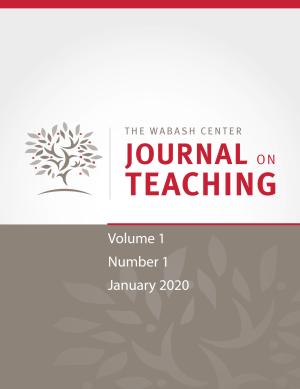
This short essay describes a teaching strategy that addresses two of the threshold concepts named by John Van Maaren in his essay “Transformative Concepts and Troublesome Knowledge: Toward a Threshold Concept Framework for Biblical Studies,” also published in this issue of the journal.